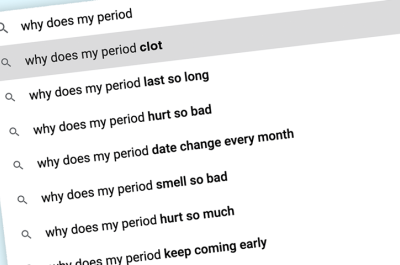Home pregnancy tests: Your most pressing questions, answered

When using a home pregnancy test, the process is quick, simple and accurate, and the included instruction booklet will tell you everything you need to know. Having said that, we also know that emotions can be high in the moment, and invariably, questions arise. Here’s what you should know.
In this article
- How long should I wait before taking a home pregnancy test?
- How long do you dip a pregnancy test in urine? What happens if you leave a pregnancy test in urine too long?
- What can affect pregnancy test results?
- How often are pregnancy tests wrong? Are they ever wrong?
- What does a faint positive line mean?
- What if I take multiple tests and the results are different each time?
- Pregnancy test: urine vs blood. Which is better?
![]()
How long should I wait before taking a home pregnancy test?
If you use an early detection pregnancy test, detectable amounts of the hormone hCG (human Chorionic Gonadotropin) can be found in your urine a few days sooner than your missed period — depending on the product, this could be up to six days before your missed period or five days before your expected period.
Here’s an example: Let’s say you expect your period to arrive on the 10th day of the month. The 10th is the day of your expected period. The 11th is the day of your missed period. So, if you have a “six-days-early test,” you could test on the 5th, which is five days before your expected period and six days before your missed period.
Your body begins producing hCG once a fertilized egg implants into your uterine wall.1 The amount of hCG is undetectable until about eight days after conception.2 During the first eight weeks of pregnancy, hCG doubles about every 48 hours.2 Read the test’s instruction booklet to determine what day you can start testing. Our online calculator can also help.
![]()
How long do you dip a pregnancy test in urine? What happens if you leave a pregnancy test in urine too long?
Follow the instructions that came with your test. If you choose to pee on a stick, keep the test stick in your urine stream for only the designated time (for Clearblue® tests, usually five seconds). If you choose to dip the tip in a collected urine sample, read the instructions to determine exactly how long the tip should remain in the urine (for Clearblue® tests, usually five to 20 seconds). If you’re not using a digital test, consider using a timer — minutes can feel like an eternity when waiting for results, and to ensure an accurate result, it’s important to keep the test in the urine for the correct amount of time. Some additional tips:
- While peeing, place just the absorbent tip in your urine stream for the allotted time.
- Avoid getting the plastic housing of the test stick wet, whether or not you’re peeing on a stick or dipping it in a urine sample.
- If your container spills and your test falls on the floor (this happens), stop the timer and consider retesting. Use a clean, dry container stable enough to hold the test and urine without tipping.
- No matter how you test, when using a test stick point the absorbent tip downward while sampling. After you’ve dipped or peed on the stick, if your test has a cap put it back on the tip and lay the test on a flat surface facing upward.
![]()
What can affect pregnancy test results?
Variability in hCG levels, your liquid intake, how you store your pregnancy test and your test’s expiration date can all affect pregnancy test results. Let’s take a closer look:
- The amount of hCG at any point in pregnancy varies from person to person.3 While some people may see a positive result four or five days before their expected period, others may not have enough detectable hCG until three days before their expected period. For reference, if using the Clearblue® Early Detection Pregnancy Test, 77% of pregnancies can be detected six days before a missed period. If you wait until the day of your expected period, pregnancy detection shoots to over 99%, assuming you’ve correctly tracked your cycle.4
- If you haven’t missed your period yet, hCG will be most concentrated in your urine first thing in the morning. Limit your liquid intake prior to testing to avoid dilution.
- Make sure to store Clearblue® pregnancy tests between 36 F and 86 F.
- Pregnancy tests do expire, so check the expiration date before using.
- Additional factors, such as certain medications or medical conditions, may also affect pregnancy test results. Be sure to read the instructions that came with your test.
![]()
How often are pregnancy tests wrong? Are they ever wrong?
We understand that getting a false positive can be a real concern but rest assured — a false positive is quite rare. If your period is late, you can trust that when using Clearblue® tests, a positive result is accurate over 99% of the time. False positives can occur if you’re taking fertility medications that contain hCG, if you have a medical condition (such as an ovarian cyst), if you are perimenopausal or postmenopausal, you have certain cancers, or if you’ve recently had a birth, miscarriage or termination.2,3 Some women may get a positive result and then experience early pregnancy loss[LINK: talk about early pregnancy loss] it’s not a false positive.
On the flip side, a negative test doesn’t necessarily mean you’re not pregnant. If testing early, you may have undetectable hCG levels. You also may have calculated the date of your expected period incorrectly. Using an expired test or not storing it properly (see above) can result in a false negative.
If you think you’re pregnant and the test is negative but you haven’t hit your expected period date, test again on the day you expect your period. If you think you’re pregnant, the test is negative and you’ve missed your period, test again three days later. If the test is still negative but you still think you’re pregnant, talk to your doctor.
![]()
What does a faint positive line mean?
A faint line can cause confusion. While digital pregnancy tests provide clear words — “Pregnant” or “Not Pregnant” — Clearblue® visual tests use lines to display the results. If you see a positive line (no matter how faint!) in addition to the control line, you’re pregnant.
For Clearblue® tests, faint result lines occur if your hCG levels aren’t very high, if you tested early or didn’t test first thing in the morning, if you drank too much liquid or if you didn’t follow the instructions. Check out examples of faint lines here.
![]()
What if I take multiple tests and the results are different each time?
Rarely will a negative test follow a positive test. If a negative test follows, it could mean that you are no longer pregnant. This can be heartbreaking. Know that repeated early pregnancy loss isn’t common and most women go on to have successful pregnancies.5
Sometimes a positive test will follow a negative test. This could be due to the timing of the negative test and a subsequent rise in your hCG levels.
![]()
Pregnancy test: urine vs blood. Which is better?
Both blood and urine tests work by detecting the level of hCG in your body, and both are similar in accuracy. Blood pregnancy tests must be administered by a healthcare professional. A blood pregnancy test is often quantitative, which means it measures the amount of hCG in your blood versus qualitative, which measures the presence of hCG in your blood. Blood pregnancy tests are typically only done if your hCG levels need to be monitored. You may not always receive the results of a blood pregnancy test the same day. Home pregnancy tests are easy to use and give you results in minutes.
In most countries, gone are the days when your only choice was to visit your healthcare professional for a blood pregnancy test and wait for the phone to ring with the results. Home pregnancy tests arm you with important knowledge quickly and easily, at a time that’s convenient for you.
Related Articles
- Can you mess up a pregnancy test?
- When is the best time to take a pregnancy test?
- Debunking homemade “pregnancy tests”: What you need to know
Sources & Disclaimers
- Office on Women’s Health, U.S. Department of Health & Human Services. Knowing if you are pregnant. Updated February 22, 2021. Accessed January 30, 2024. https://www.womenshealth.gov/pregnancy/you-get-pregnant/knowing-if-you-are-pregnant
- Gnoth C, Johnson S. Strips of hope: accuracy of home pregnancy tests and new developments. Geburtshilfe Frauenheilkd. 2014;74(7):661-669. doi: 10.1055/s-0034-1368589. Accessed January 30, 2024. https://www.ncbi.nlm.nih.gov/pmc/articles/PMC4119102/
- StatPearls [Internet]. Betz D, Fane K. Human chorionic gonadotropin. Updated August 14, 2023. Accessed January 30, 2024. https://www.ncbi.nlm.nih.gov/books/NBK532950/
- >99% accurate at detecting typical pregnancy hormone levels. Note that hormone levels vary. See insert.
- The American College of Obstetricians and Gynecologists. Early pregnancy loss. Updated May 2023. Accessed January 30, 2024. https://www.acog.org/womens-health/faqs/early-pregnancy-loss

How to get pregnant faster
There are a few key things you need to know if you want to maximise your chances of getting pregnant.

How to use a pregnancy test
When and how you can test depends on the test you use, but in this article you will find everything you need to know before starting a test.






